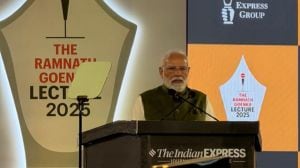EPFO to pay 9.5% till new rate decided
Employees received some good news from retirement fund manager EPFO.
Subscribers of retirement fund manager EPFO,settling their final claims before the new rate is announced for the current fiscal,will get the existing 9.5 per cent interest on their deposits.
“Since the rate of interest (on deposits) for 2010-11 has been declared as 9.5 per cent per annum,settlement of claims of the EPF subscribers during 2011-12 shall be made at 9.5 per cent per annum till rate of interest is declared for 2011-12,” said an order issued by the Employees’ Provident Fund Organisation (EPFO).
The decision will benefit those subscribers who are either retiring or going in for full and final settlement of their accounts before the new rate is announced for 2011-12.
In September,EPFO had announced 9.5 per cent rate of return on deposits for over 4.71 crore subscribers for 2010-11,which has been ratified by the Finance Ministry.
The order is contrary to the view of the Chairman of EPFO’s apex decision making body,Central Board of Trustees (CBT),who wanted to give 8.5 per cent rate for 2011-12 to all outgoing subscribers settling claims this fiscal.
CBT,which is headed by the Labour Minister,had expressed the view of providing 8.5 per cent.
EPFO had been providing 8.5 per cent rate of return to its subscribers for five years since 2005-06. It was raised to 9.5 per cent for 2010-11 after EPFO discovered a surplus of over Rs 1,700 crore.
According to the Employees’ Provident Fund Scheme,EPFO has to settle claims at the rate provided for the previous fiscal,in case the rate for the subsequent financial year has not been declared.
This rule will benefit all those subscribers who would settle their claims before the announcement of the rate of return for 2011-12.
They will retain the gains even if EPFO announces interest rate lower than 9.5 per cent for this fiscal,but will be able to claim the difference if the rate happens to be higher.





- 01
- 02
- 03
- 04
- 05


























